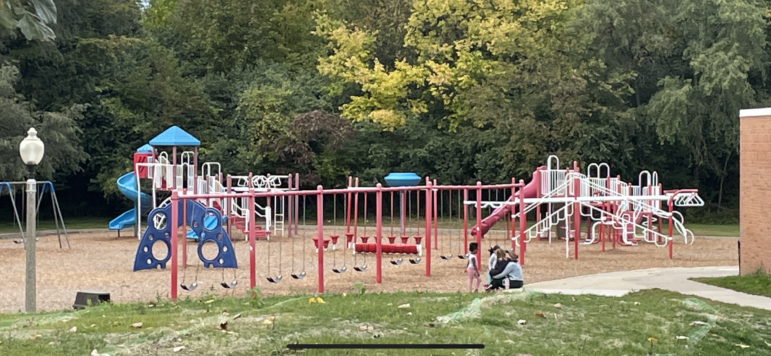
A.J. Evans
At Red Cedar Elementary School, young students gather around their teacher.Four openings on the East Lansing School Board means change is likely. School personnel have varying opinions on what they would like the new board to address.
Cody Harrell, an English teacher at East Lansing High School, has been in the district for seven years. One of his biggest concerns reflects a national trend. “I do worry about the politicization of school boards,” Harrell said. “I don’t think I used to see school board campaigns that are conservative or liberal, and now I do. I didn’t think your political beliefs made you more or less qualified to be on a school board.”
School safety is one issue
Teachers mentioned another burgeoning state and national issue: school safety. Mark Pontoni is a history teacher at East Lansing High School, and vice president of the East Lansing Education Association, the union that represents teachers in the district. Pontoni said, “We made a decision as a district some years ago to remove police and security from our buildings, and I don’t think that has always worked well for us.”
“There have been times when we need help. And just hoping that students will behave 180 days of the year, and six hours a day is wishful thinking sometimes,” Pontoni said. “Security in the building is a big issue. And I don’t know how it’s going to play out as we move forward, but we as a union are concerned about it.” Pontoni noted that this topic was mentioned last week in a meeting with the union and school board candidates.
Concerns about testing
In addition to safety, standardized testing is a trending topic within East Lansing schools. Dr. Nichole Biber, a librarian at Robert L. Green Elementary School, said the decades-long principle of standardized testing has been disastrous for public education. “A curriculum beholden to test scores, using tests proven to be rife with cultural biases and insensitivities, needs to be seriously interrogated as inimical to stated goals of equity and inclusion,” Biber said. “What good is the mastery of one-size-fits-all testing, when outside those doors there is hunger, and addiction, and climate chaos and poverty? We should be focusing on how we can empower our children with the agency to find and act upon innovative solutions to real-world issues.”
Biber also said the school board has fallen short in its efforts in recent years, particularly with social issues. “I do not think there has been a sufficient response to the myriad critical issues facing our communities, because again, leadership too often stops short of challenging and changing the deeply flawed foundations of the current malfunctioning system.”
“The board sets policy,” Pontoni said. “The board is the voice of the community in our buildings, and the policies they set affect every one of us at the end of the day.”